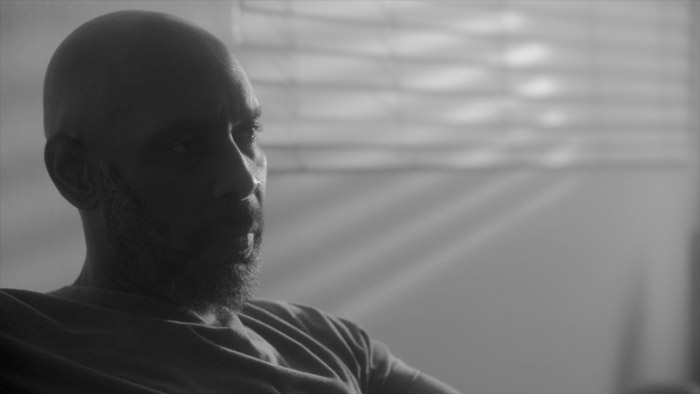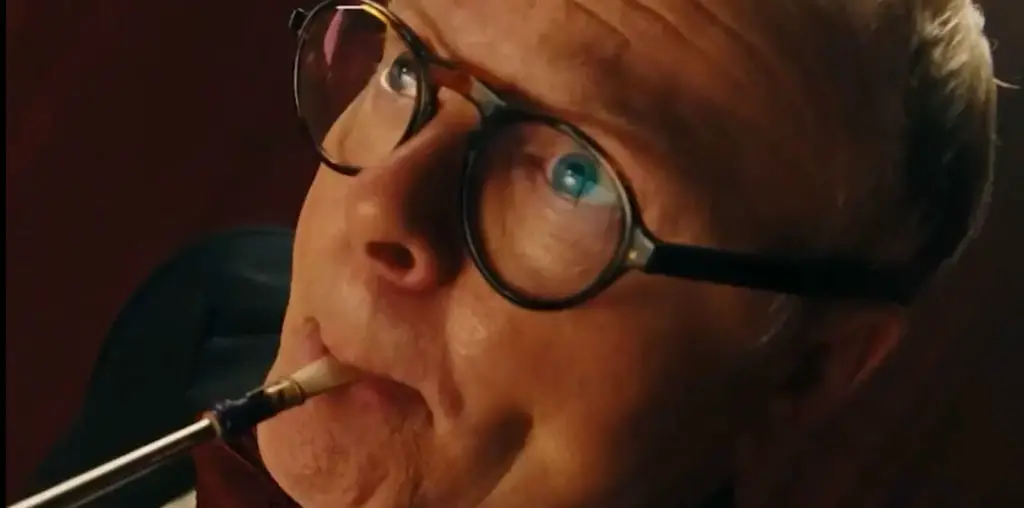
Ashley brought a lot of love and hope to the film. The chemistry she formed with Rashad in the movie was something to see, becoming a solid support system.
Marcellus: Exactly. And that was what Ashley and I had discussed when we went over the character – the simple fact that she was more of the one who could get through to him. When the whole world seems bleak, you have that one individual. Sometimes, it is a love interest, but it’s just that one person you can see that he can indeed be himself. And that was the beautiful thing that I loved about the character. Even when he was at his lowest, to the point where he finally realized that there was just no going back after he lost his artwork to his boss, you could see that even her love wasn’t enough for him. But you see, that dynamic between them was extraordinary.
Rashad, would you like to jump on it – expanding on your chemistry with Ashley and the connection you formed with her character?
Rashad: Yeah, those were some of my favorite scenes to shoot. I was shooting extensively with David and Stephen, and the scenes with them were more on a severe front. But then, I’d go back and shoot with Ashley and do some lighthearted scenes with her. Those were also my favorite ones because I got to challenge myself and tweak my performance on those compared to the short film. And it’s a fantastic experience shooting with Ashley. You know. She is a pro.
Marcellus: If I could jump on it. Boy. If you look back. Rashad has created different layers of performances with other characters. And that’s why I commend him because Mickey becomes a wholly new aesthetic with him. I noticed that the most when I look at his relationship with David, and then you see the way his undertones with Stephen and the underbelly tones with Ashley; it’s a starship performance because most actors will play the character the same, but he broke it down in three different levels. So that was an exciting performance about Rashad, especially working with each of those actors, because they all brought something wholly compelling and utterly different to his world.

“Rashad has created different layers of performances with other characters.”
For you, Rashad, how was it playing him? Mickey is torn at several levels in life. He is going through a lot. So, when you were preparing for the role, what were your perceptions about him? And was playing him scary, given the film’s vital subjects?
Rashad: No, yeah, it was heavy. It was heavy. When preparing for it, I read the script as often as possible before we stepped on set. I was jotting down as much as possible on the back of each scene and ensuring I had the proper timelines. These are the flashbacks. These are the present moments where I need to portray someone who is 25 instead of 18. Yeah, it was tricky, but it was fun. It was a challenge. I’m grateful to Marcellus for bringing me on and for the short and feature, bringing me back to reprise the role. I’m thankful, forever grateful.
David, I want to know how you perceive Rendall before asking specific questions. If I ask you who, how is that person, who is Randall to you? What would you say, especially when assessing his attributes or personality?
David: Who is Randall? The Devil? Some of his personality is mine. He has this kind of laid-back quality about him. Yeah. That’s me. He does have this explosive anger. That’s me. I’m super friendly until you push me to a certain level, and then I’m different. So yeah, that’s a lot of who he is. But Randall was just written so well. And the scenes that he was in were just so incredible. It didn’t take much discovery to build this character. It was just like, be yourself. And that’s what I did. It worked out.

